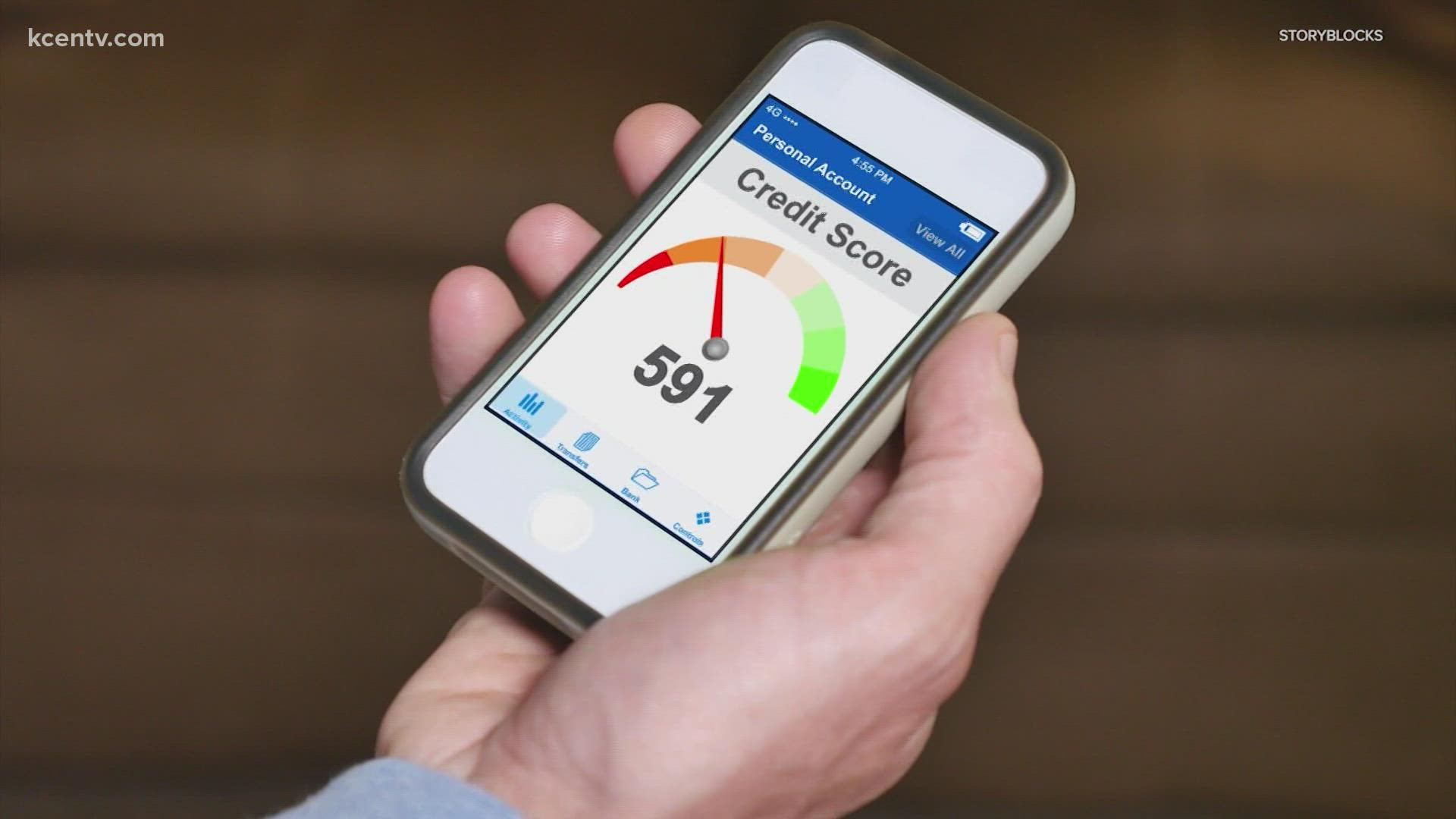TEMPLE, Texas — There's no easier way to say this but credit scores matter and no matter what yours is, it could be used as a reflection, or first impression so to speak, of who you are.
"Credit scores are not only to get credit, many people do not know that employers use credit to screen candidates or rent apartments," Lourdes Zuniga, the Executive Director of Financial Health Pathways told 6 News.
April is Financial Literacy Month and according to Zuniga, Texas ranks 43 out of 50 in financial literacy, something she believes we could all improve on.
According to InCharge, a non-profit debt solutions company, credit scores are based on multiple factors and is a mathematical equation with varying degrees of impact.
Tom Jackson, who writes for InCharge, said your score is based on five scoring factors:
- Payment history– Counts as 35% of your score. It’s a record of your bills and when you make payments. Three words of advice: Pay. On. Time.
- Credit utilization– 30% of your score. That’s how much available credit you use. For instance, if you have a $1,000 limit on your card and you spend $500 this month, your utilization is 50%. The scoring system likes you to keep credit utilization under 30%.
- Length of credit history– 15%. This simply shows how long you’ve been using credit and paying bills. The longer, the better because it gives credit bureaus a better idea of how you handle your business.
- Inquiries and new credit– 10%. That’s when a potential lender checks your credit report. There are two kinds of inquiries. A “hard inquiry” is when a financial institution (banks, credit card companies, mortgage brokers) asks to see your report. Those negatively impact your score. A “soft inquiry” is when there’s no real money involved, like when an employer is conducting a background check, a utility company is setting up a new account or you’re just checking for yourself. Those inquiries usually don’t affect your score.
- Diversification of credit– 10%. Credit comes in many forms, like mortgages, credit cards, auto loans, utility bills. The more varied your portfolio, the better. As long as you pay all those bills on time, of course.
Nearly 30 percent of adults in the United States have a bad credit score but it's not something that you can't fix. While it will take hard work and discipline, Zuniga said the best thing you can do is to stop running from it.
"Credit is not a bad thing. Building credit with small purchases and keeping a good credit score but paying consistently is a great way to build a better future," she said.
What about those that don't have credit, is it best to establish credit and how important is it to do so? John Ulzheimer, an expert on credit reporting, credit scoring identity theft, writes for badcredit.org, said it's a personal choice to live off the credit grid.
The Consumer Financial Protection Bureau (CFPB) published a report in 2016 that said 45 million consumers met that definition in 2015.
"To the extent that you ever want to buy a house, a car, or ever want to get a credit card someday, you’re going to need to have a credit report and a credit score unless you plan on paying cash for everything," Ulzheimer wrote online. "And you’re going to need to have relationships with creditors if you want to have credit reports and credit scores."
Zuniga, who immigrated 20 years ago to the United States, said the best advice she received was to establish her identity with documents and to not be credit invisible.
"I remember getting my first laptop and paying it off to help establish who I was in the US," she remembered. "That was the best advice that I got at that moment because later on when you want purchase a home and get a job, believe it or not, people check your credit."
When it comes to bad credit, Zuniga admitted that some cases are so bad that the only way to get a handle on it is to do damage control rather than credit repair.
"There are some situations for some people that we'll have to take case by case because there are situations where it's sometimes almost irreparable but I also think, for that, there are best practices where pre-paid cards and things like that you can use to just contain the damage," Zuniga said.
One thing to keep in mind, too, if you have a bad credit score is that it doesn't follow you forever as credit report entries do drop off after seven years.
Zuniga said that pulling yourself out of credit score purgatory is possible and a bad credit score doesn't translate into a financial death sentence forever. Her advice for those looking to make a small change today, start small.
"Pick up the phone and contact the people you owe and negotiate with them for payment plans, try to make small payment amounts consistently," she said.
If you are interested in knowing your credit score, did you know you can request it once per year for free? Click here for more information.

